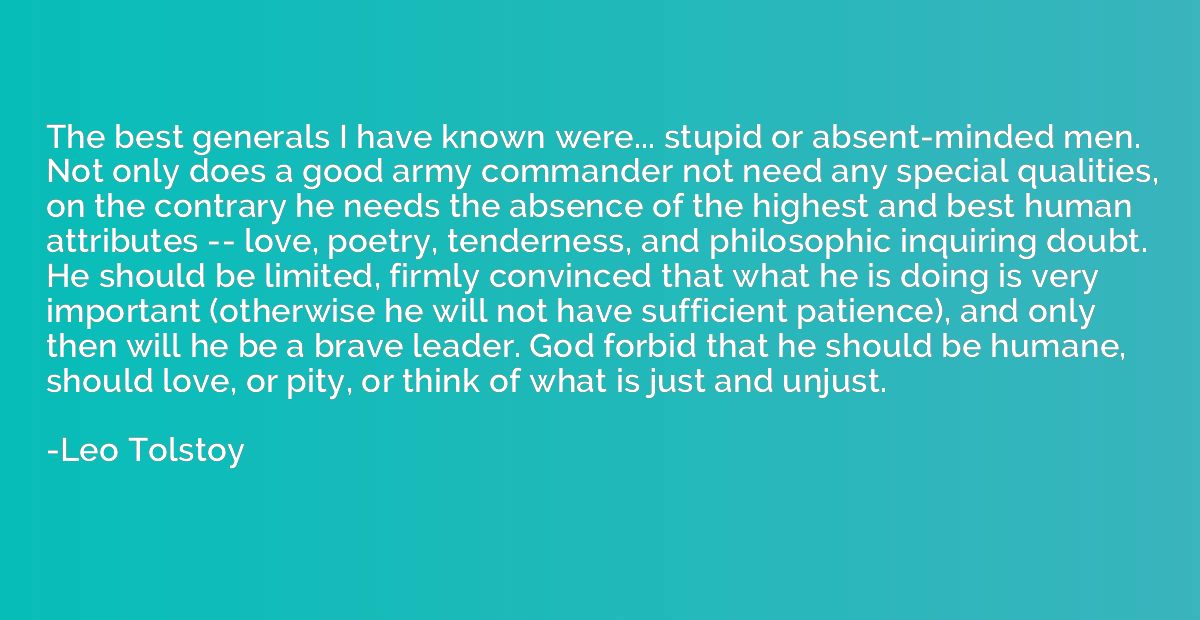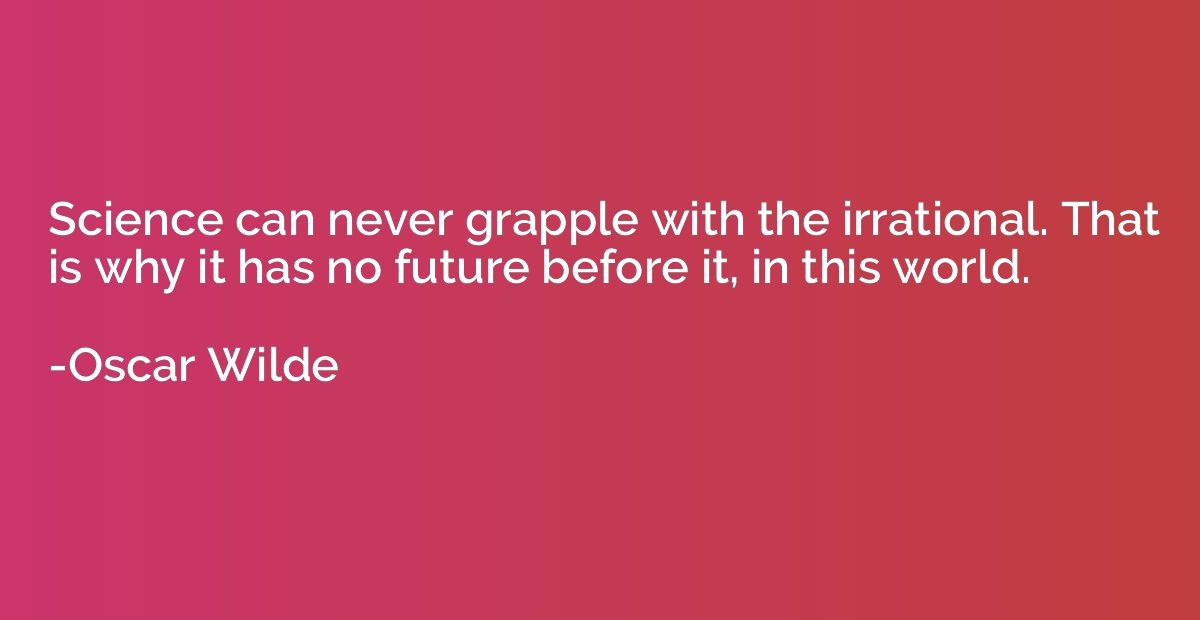Quote by Leo Tolstoy
The best generals I have known were... stupid or absent-minded men. Not only does a good army commander not need any special qualities, on the contrary he needs the absence of the highest and best human attributes -- love, poetry, tenderness, and philosophic inquiring doubt. He should be limited, firmly convinced that what he is doing is very important (otherwise he will not have sufficient patience), and only then will he be a brave leader. God forbid that he should be humane, should love, or pity, or think of what is just and unjust.

Summary
This quote suggests that the best generals do not possess qualities such as love, poetry, tenderness, and philosophical doubt. Rather, they should lack these attributes and be limited in their thinking, firmly convinced of the importance of their actions, and devoid of compassion or concern for justice. The quote argues that a successful army commander requires a singular focus, immense patience, and bravery, independent of moral considerations. It discourages empathy or personal introspection, positioning a rigid, single-minded determination as the essential trait of a leader.
Topics
Military
By Leo Tolstoy














